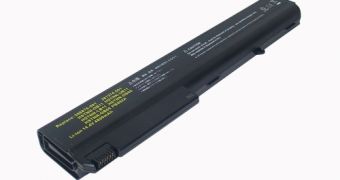PC Vendors Dell and HP have been called in front of the United States Court of Justice to account for a series of malfunctions in their IT equipments that have led to severe physical injuries. The lawsuits are unrelated to one another but claim that faulty computers started to spark fires and finally explode.
Dell is accused of having sold a faulty monitor that caught fire during normal operation. The monitor burnt within a lube shop, and set the owner's business on fire. "The computer monitor was unfit for its intended purpose in that it was assembled in such a way as to cause the electrical system to malfunction and cause a fire," attorneys for Big Sky Battery of Williston, North Dakota, allege in court papers.
The fire caused quarter million dollars in property damage, but there were no deaths or injuries. The ex-owner of the Dell monitor is now seeking property damage as well as other damages. The case was moved to the North Dakota federal circuit upon Dell's last week request.
A similar incident took place in Arkansas, where a HP Compaq Presario PC burst into flames and set a whole house on fire. Moreover, the notebook owner's daughter suffered severe injuries, as she was forced to jump from an upstairs window in order to save her life. The lawsuit papers claim that she suffered "burns and physical injuries" and permanent disfigurement.
Neither of the companies took blame for the allegations and refused to comment upon the incidents. However, there is a close relationship between Dell's products and those manufactured by Hewlett-Packard: they both use LG Chem's notebook batteries. Almost 80 percent of LG Chem's notebook battery production is used by HP and Dell for their notebook units. These batteries are made of six lithium cells, but larger models can have as much as 12.
LG Chem alleges that the battery tests the company usually performs include drop tests, internal short circuit testing, and even overcharging and overheating to 130? C. Neither of the batteries exploded during these extreme tests, says the company. However, these assumptions have had a negative impact over the LG batteries, and worldwide owners express alarm and distrust. "How can I dare put that bomb on my lap again," asked one notebook user. "My notebook always seems to be too hot anyway, how can I possibly tell when it's getting dangerous?", states another.

 14 DAY TRIAL //
14 DAY TRIAL //